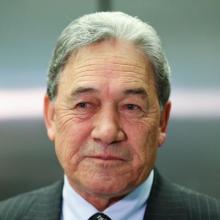
Winston Peters had a win this week when the government announced its plans for a second phase of the Royal Commission of Inquiry. While NZ First’s position is that the independent commissioners appointed to carry out the inquiry are the wrong people — and it invoked the "agree to disagree" provisions in its coalition agreements to make that point — the new phase two will broaden the scope of the inquiry to examine things the party is concerned with, such as vaccine efficacy, lockdowns, and disruption to health, education and business.
This evinced some hearty scoffing, particularly from Labour leader Chris Hipkins, who called phase two "trying to court the cooker vote" — in other words, pandering to conspiracy theorists.
In respect to the further consideration of vaccine efficacy, Mr Hipkins may well be right: while the Covid vaccine does pose an incredibly minor health risk to some truly unfortunate individuals, mainstream science — let alone the vast majority of people — do not dispute that the vaccine helps prevent contraction and transmission of Covid-19.

Tools like lockdowns were used in good faith, based on the best scientific information available. They were, generally, accepted with good grace by a majority, who recognised that they were being used not only to protect them, but also the vulnerable.
But, as the government recognised, shutting down your economy comes with a cost. This was a cost which New Zealand First, and also Act New Zealand, thought had become too high to bear.
There was an impossible balancing act to be performed, between keeping New Zealand Inc functioning and keeping New Zealanders alive. Given that no-one knows when the next pandemic will come, how disruptive it will be and what sort of a health threat it will pose it is inconceivable to draft any hard and fast rules about when, where and for how long quarantine rules should last.
But NZ First is right to say that the discussion should happen, so that some evaluation exists to be considered in the future as to what the public acceptance of public health measures such as long lockdowns might be.
Likewise, and no less difficult, it is also worth considering to what extent economic, educational and health concerns should be weighed up in a future pandemic decision-making process.
There will not be unanimity, but measured consideration should not be dismissed as pandering. They are important issues, and they should be given a fair hearing.
Which brings us to where Mr Peters has gone too far. While he has misgivings about those commissioners and their independence, they are rigorous people who recognise this is a detached and evaluative legal process, not a partisan or personal exercise.
The minister responsible for the Inquiry, Act's Brooke van Velden, was correct not to cancel it, or change its personnel. Quite apart from being a profound breach of the principle that governmental and judicial processes should not interfere with each other, it would also be a waste of everyone’s time, and the public’s money to call time off the inquiry at this far distant point from its start.
Ms van Velden is also correct that it would create a terrible precedent, as well as defeating the object of the royal commission process, for one to be closed down before it had even reported back.
Governments can, and have frequently, disagreed with royal commission findings — but they need to actually see, read and then respond to the report first, rather than prejudging its content based on a perception of its authors.
We disagree with Mr Peters that the resignation of one of the commissioners, former National cabinet minister Hekia Parata, for personal reasons, meant that the inquiry should have been scrapped. Ms Parata had completed her inquiry duties.
A third person is set to join the two remaining commissioners, who will resign their roles after delivering their report on the first phase. The second phase secured by Mr Peters will begin with the third commissioner and two newly appointed ones, after the first phase report is delivered.
Assuming those people are as well-credentialed as the first set of commissioners were, there is no reason to doubt that they too will perform their duties diligently, as the public is entitled to expect them to do.











